It just so happens that the number 68 reminds Chinese speakers of a prosperous life. The number 8 on its own is considered lucky and pervades Chinese consumer pricing as a marketing tool. We find that twenty-six percent of the IPO prices for the Chinese domestic market between 2000 and 2009 end in the lucky number 8. We also find that other lucky numbers, and lucky number combinations, are favoured in Chinese IPO pricing.
The number 4, for which the pronunciation is reminiscent of the word death, is also systematically avoided. In the United States IPO market, most IPO prices are based on the integer. This has been attributed to the negotiation hypothesis, where IPOs priced on the integer signify uncertainty as to the intrinsic value of an IPO.
We find no evidence that this is also the case in the Chinese IPO market based on either number 8 or integer price-endings. We do find evidence that issuers and underwriters use number 8 price-endings to capitalise on investor sentiment. This is consistent with the marketing literature, where the number 8 is consistently used as a price-ending in advertising for Chinese consumer products. In Chinese culture, even numbers are typically considered auspicious except for the number four. There are many reasons behind designating numbers as lucky or unlucky, and in the case of number four, the word four in the Chinese language sounds like the Chinese word for death. Therefore, the number four is considered to have the same energy and properties as the word for death.
In feng shui practices, whenever a house number has a four in it, the Chinese resident will place a circle around the house number so it is transformed by the circle. Purpose – The purpose of this paper is to examine the stock return impact of "lucky" numbered days in markets dominated by Chinese participants. The existence of such patterns might present arbitrage opportunities for investors who do not share a belief in the Chinese system of "lucky" numbers. Design/methodology/approach – In univariate and multivariate analyses, the author examines the statistical significance of return differences between "lucky" numbered days and other days. The author examines samples which only consider single digit days and months, and the author also considers samples based on the last digit of the day or month. In such markets, prices are more likely to end in a "lucky" number than an "unlucky" number.
Chinese firms also tend to price their shares at IPO using "lucky" numbers and avoiding "unlucky" numbers. The author extends this literature to examine whether dates containing "lucky" and "unlucky" numbers experience stock returns significantly different than other days on Chinese stock exchanges. Like 5, 7 has both positive and negative connotations in Chinese culture. For the positive side, 七 sounds like both 起 (qǐ), which means "start" or "rise", and also 气 (qì), which means "vital energy". Seven is also seen as a lucky number for relationships. The Qixi Festival (七夕節), also known as the Chinese Valentine's Day, falls on the 7th day of the 7th month in the lunar calendar.
The 7th month is also known as the "ghost month" in China, where ghosts and spirits are believed to rise from hell to visit earth. While ghosts may be seen as omens, the ghost festival in the 7th month is widely celebrated. 7 may also be considered unlucky because 七 sounds like 欺 , meaning "cheat". In China, it is customary to regard even numbers as being more auspicious than odd ones. So, gifts are given in even numbers for the celebration of all occasions. No. 8 has long been regarded as the luckiest number in Chinese culture.
With pronunciation of 'Ba' in Chinese, no. 8 sounds similar to the word 'Fa', which means to make a fortune. It contains meanings of prosperity, success and high social status too, so all business men favor it very much. Moreover, in some areas of China, people prefer to pay much more money for a telephone number with 8 in it.
They also favor residences on the eighth floor of buildings. In 1990s, a vehicle identification number with 8 was once auctioned off for 5 million Hong Kong dollars. 4 is well known to be an unlucky number because 四 sounds similar to 死 (sǐ), which means "death" in Chinese. People will go to extremes based on superstitions of the number 4. Houses and apartments that have 4 in the address number will sell for much less than ones without. Mentioning the number four to an ill family member is considered to be highly offensive, and giving anything with 4 on it to someone can be seen as a death threat.
6 is pronounced "liu" in Mandarin Chinese, and this sounds like the Mandarin Chinese word meaning "flowing, smooth, or frictionless". Therefore, the number 6 has the meaning of "everything will go smoothly" and is considered lucky especially where it occurs in multiples. In feng shui, the number 6 represents authority and power. The number '8' in Chinese sounds very similar to the word 'Fa'. Fa means prosperity, success, social status, or wealth. Harmony and balance are important in Chinese culture.
The number six represents success, while the number two represents harmony. The association of numbers with luck is also present in the business environment in China. Some businesses will even go as far as to have big events or opening on specific days that have certain associations. For examples, if the business dealing is done on the 8th, it will have luck. And other similar numbers have been connected to the ancient Chinese game keno. In keno luck plays a huge part in the outcome of the game.
And some numbers are believed to be winning more often than others. Even numbers are traditionally luckier than odd numbers. When you give a present to your Chinese business partner, even numbered gifts are always better than odd ones. However you should never, ever give someone something in a set of four. Four is China's unluckiest number and it sounds almost exactly like the Chinese word for death. In a country where it is easy for people to choose their own phone numbers, the ones free of the number four are the most popular.
Some buildings even skip the floors 4, 14, and 40 to ensure that no harm comes to the inhabitants. But the number four is considered unlucky because it sounds a lot like the word for "death," and as a result Chinese buildings often lack a fourth floor . Three lucky numbers are overrepresented on plate endings, with 12 or 13 percent each. 6 (六), pronounced liu, is considered lucky as it sounds like the word that means 'to flow', and can indicate smooth progress in life.
Similar to 8, 6 is preferred in number plates and phone numbers. When a couple gets engaged, the man customarily offers a gift to the girl's family which is usually money and this gift signifies a harmonious life for the couple. Customers in the West might raise eyebrows at a product priced at $6.66, but people in many parts of the world would not. In Chinese, the pronunciation of 666 sounds like the phrase, "things going smoothly" and is considered to be very lucky. Many businesses even hang the number above their door. However, in Japan specifically, the number 9 is a bad-luck number that sounds like "suffering" when spoken aloud; so a price of $9.99, while common in the West, would be viewed negatively.
The numbers that are generally considered lucky in China are those that sound similar to words with lucky meanings. Throughout the rest of the article, we will discuss the exact general lucky numbers in China and what makes them so special. We will also discuss a few of the important lucky number combinations. Additionally, this number represents the three stages in the life of humans - birth, marriage, death - that adds to its importance in Chinese culture. Alternatively, the number 3 is generally considered lucky due to its similarity in sound to the word of birth. This number represents the three stages of life of humans - birth, marriage and death, which adds to its importance in Chinese culture.
6 sounds like the Chinese word "liu" which means "flowing, smooth, or frictionless". As such, 6 implies that "everything will go smoothly" and is considered lucky especially if it comes in multiples. Thus, it is particularly appealing to business owners, who are willing to pay extra to occupy buildings at addresses containing the number 6. In the Chinese culture there are lucky and unlucky numbers in their culture. In total there are seven lucky numbers and four unlucky numbers.
Numbers have always played a significant role in Chinese culture. People in China traditionally combine their fortune with lucky numbers. They believe lucky numbers can bring them good luck. Because of its negative association with death, most people consider this number to be so unlucky that many buildings in China do not even have a "fourth" floor. The number 4 is also unlikely to appear on house/door numbers and car license plates.
Whenever, possible, many people will also try hard to avoid choosing telephone numbers that contain the number 4. Is well known to be an unlucky number because 四 sounds similar to 死 (sǐ), which means "death" in Chinese. Did you know that if you press a Chinese elevator button to go to the 50th floor of a building, you may actually only be going to the 35th floor? This is because many buildings in China not only omit the 13th floor, but are also missing any floor containing the number 4, which is considered to be the unluckiest number in Chinese culture.
The Chinese have many superstitions about numbers, often related to similar-sounding words in the Chinese language, which are called homophones. 3 (三), pronounced san, is considered lucky due to its similarity in sound to the word that means birth. In China, lucky numbers have pronunciations that are similar to words with lucky meanings. To a lesser extent 2, 6, and 9 are considered lucky. As well as these general number superstitions, fengshui and the Chinese zodiac dictate different number luck for different places/people. Birthday celebrations are very important to ensure good luck.
Some mothers have a caesarean birth just to bring a child into the world on an auspicious day. The day of birth is considered the first birthday, so Chinese ages are stated a year older than western ages. The birthday must be celebrated on or before the day, never after. Nowadays, sometimes birthdays are celebrated with a beautifully frosted cake, although this often becomes the fuel for a teenage food-fight rather than something to eat. Long noodles, symbolising long life, are traditionally eaten by the person celebrating his or her birthday.
The noodles must not be cut with a knife, and are meant to be slurped until no more can be stuffed into a person's mouth before they are bitten. Chinese lucky number and unlucky number, do you know it? In Chinese culturecertain numbers are considered "lucky" because their pronunciations sound similar to words that have "lucky" meanings. Lucky numbers are very important in Chinese culture. People select lucky numbers when choosing residences, telephone numbers, business addresses, wedding dates, festivals and other celebratory events.
Number four is considered an unlucky number in Chinese because it is nearly homophonous to the word death. Number five can represent "me" in Mandarin and it is usually included with not. Six in Cantonese has a similar pronunciation to the word Lok6 meaning to drop, fall, or decline and can make unlucky combinations. As in many cultures, there are certain numbers that are luckier than others in China. Where in the West, 7 might be considered an extremely lucky number, while 13 is bad luck, China has its own version of auspicious digits.
In Mandarin, the number 3 can sound like the word "apart," so it's bad luck if it involves weddings or romance in general. However, apart from situations regarding relationships, the 3 is considered neutral or even positive. The number 3 is a lucky number according to Chinese numerology. In the ancient times, there were lots of fine combinations of the number 3. And for the pronunciation, it's similar to "life" in mandarin Chinese, with a positive connotation. In fact, the Chinese are so superstitious about numbers, that they will often spend big money for "lucky numbers" in their life.
A man in Hangzhou listed his license plate, A8888, for $140,000 online. Often, numbers that are visible in the background of an image might be innocent in one country but provoke fear in another. For example, a photo of a soccer player with a big number 17 on his jersey might look fine to audiences in most parts of the world, but in Italy this number is considered very unlucky. In fact, at the winter Olympics in Turin, the 17th curve on the bobsled track was referred to as "Senza Nome" instead of referring to it with the unlucky number 17.
Also, make sure to check the number of people or items you are displaying in a given picture — the number can be viewed as unlucky in some markets. For some Vietnamese, it's considered bad luck to have 3 people in photos. Chinese firms also tend to price their IPO shares with numbers ending in eight and avoid prices ending in four .
These studies find a significant impact of lucky numbers for markets where many or most of the participants are of Chinese extraction. Numbers and colors had great meaning and played an important role in the culture of Ancient China. Some were considered lucky, while others were considered unlucky and should be avoided. Some were so special they were reserved for the emperor alone.
The number Eight in Chinese sounds like "prosperity" or "wealth", so it is considered a lucky number. Large sums have been paid to obtain combinations with this number in license plates and mobiles. 5sounds like the Chinese word for "not", indicating that tasks and goals may not be achieved. However, if combined with another unlucky number, it can bring a lucky effect, e.g. if combined with 4 to become 54, then it would mean "cannot die".
But if used together with a lucky number such as in 528, it would mean "no good fortune". In such cases, an understanding of the Chinese language would come in handy. The pronunciation of the number four in Japanese is very similar to the word death, and because of this, four has been considered bad luck in Japan, Korea and China.
It is considered very bad luck to give a gift that is made up of four pieces to someone. Many buildings in heavily Asian areas do not have a fourth floor, much like the way North American cultures treat the number 13. In Mandarin, the number "3" can sound like the word "apart," so it's bad luck if it involves weddings or romance in general. Four is the unluckiest number in Chinese numerology. The romanisation of the number is 'si', which sounds scarily similar to the word 'si', meaning 'death'. The number is considered inauspicious in Japan and Korea as well, where the words 'four' and 'death' remain homophonous.
In China, numerology is more than just a superstition, it's a lifestyle. 'Eight,' for example, is considered a lucky number, so lucky, in fact, that people will splash millions to have a string of eights on their license plates or in their phone numbers. Culture Trip explores which numbers are good and which are bad and what that might mean for you. In Chinese culture, lucky numbers can bring good luck and fortune to their life. Chinese numerology might seem like an obscure field, but this unique set of beliefs plays a big role in modern Chinese culture.
Read this article to gain insight into this quirky aspect of modern Chinese life. 4 in China is considered terribly unlucky because it sounds like the word for "death". It is really a bad idea to assign the number 4 to anything. Generally, door numbers and car registration numbers do not contain any 4s, especially not in the last digit-place. Chinese' fondness for 8 can be seen in many other cases, such as house numbers, phone numbers, number plates, wedding dates, the date for opening a business, and so on.







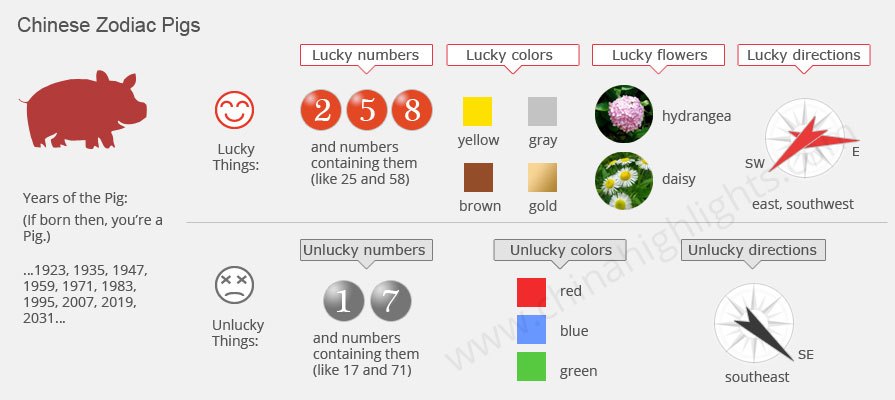


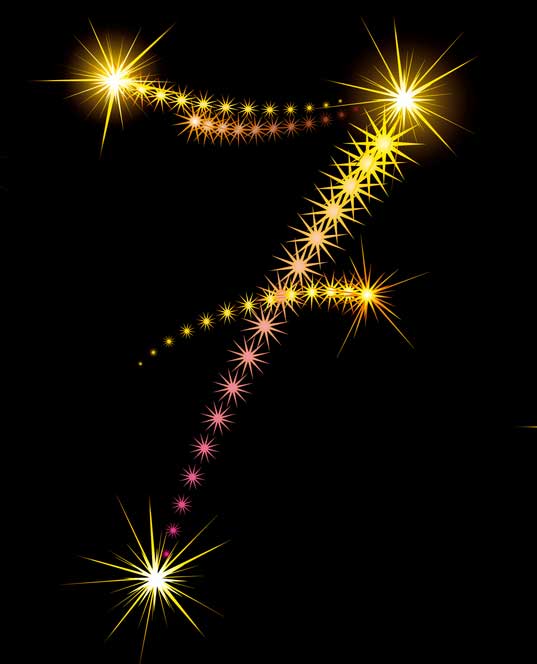






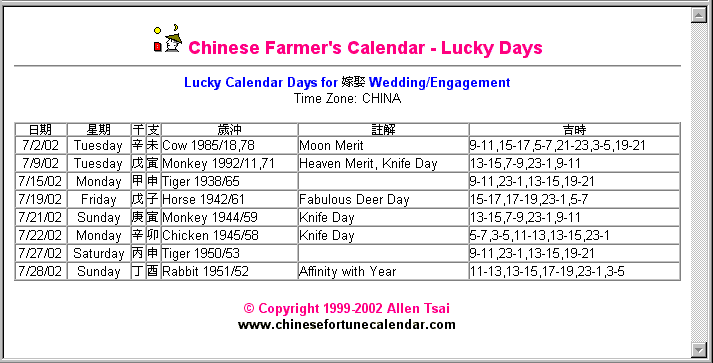
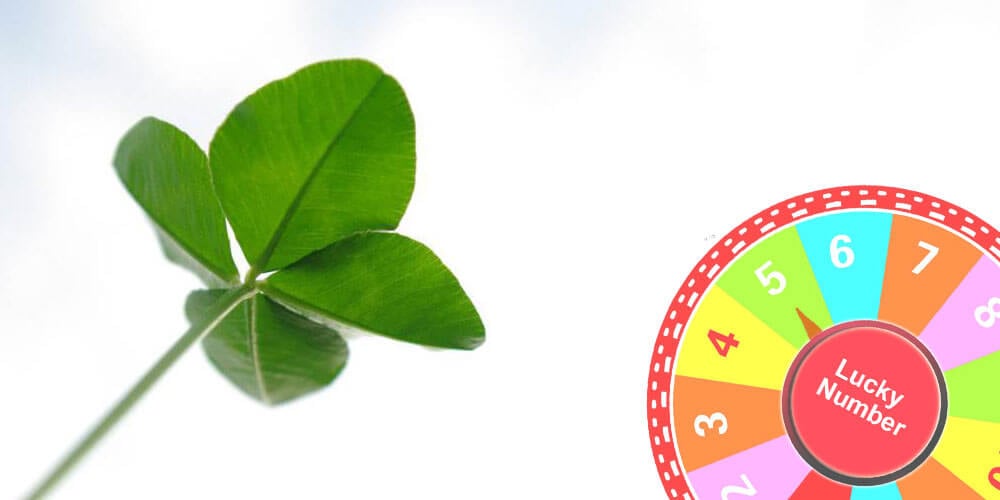







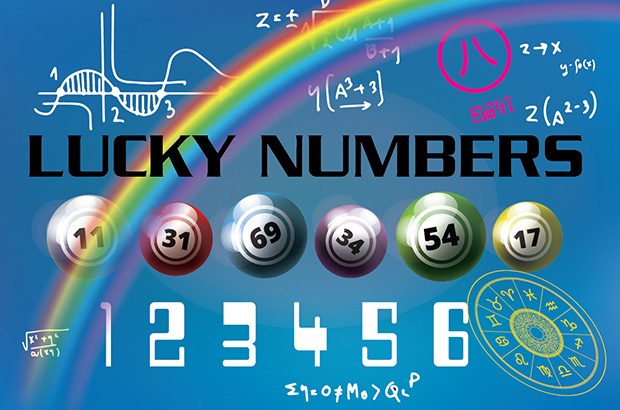

No comments:
Post a Comment
Note: Only a member of this blog may post a comment.